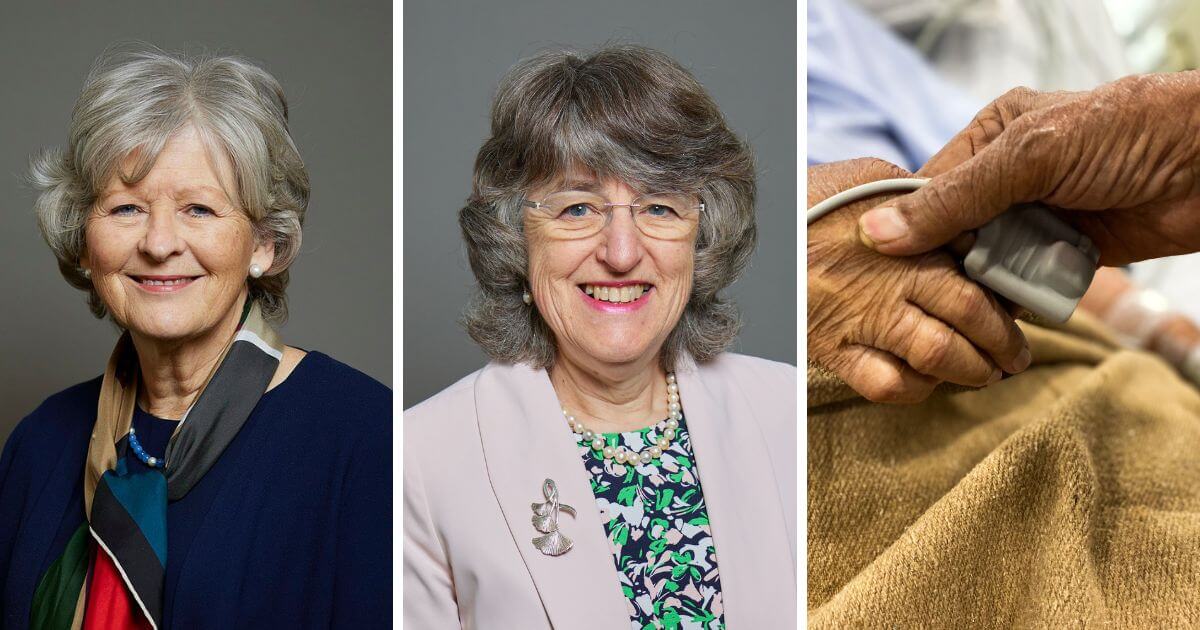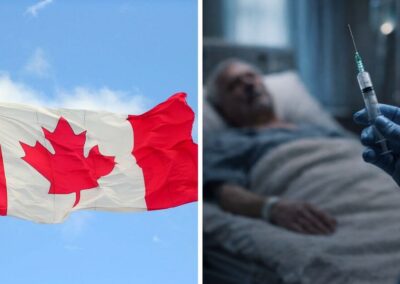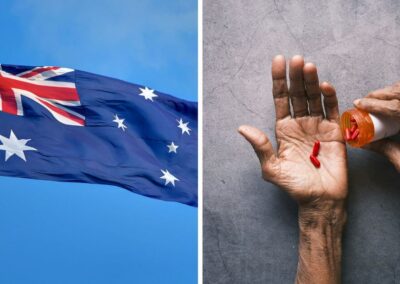Baroness Finlay and Baroness Hollins both made a strong case against assisted suicide in the first evidence session of the Health and Social Care Committee inquiry on assisted suicide held yesterday.
In her opening remarks, Baroness Finlay, a doctor, professor of palliative medicine and past president of the Royal Society of Medicine, shared a powerful story about a man she was treating who was “desperate for euthanasia”. She said that her colleagues thought that he would live for no more than three months. With great difficulty, she persuaded him that she would try and relieve his symptoms. The man told her that he would give her two weeks before he killed himself. She went on to say “11 years later, he phoned me because his wife was dying. She died in my care with his children at her bedside and him in a wheelchair. He is still alive today.”
She rebutted several points regarding the quality of life of those in palliative care made by Baroness Meacher, the chair of the campaign group, Dignity in Dying. She concluded by sharing her personal experience with her mother. Her mother was strongly in favour of euthanasia.
“When she was dying and we thought she had six weeks to live, she was extremely angry with me that I’d opposed it [euthanasia]. Four years later, she said that she was really glad and that she had the most incredibly rewarding time seeing her grandson born and so on”.
Baroness Hollins, professor of the psychiatry of learning disability, past president of the Royal College of Psychiatrists and past president of the British Medical Association, also shared important information about the disproportionate effect that assisted suicide can have on individuals with learning disabilities and autism. She said that assumptions are being made about the quality of life of individuals with disabilities.
Death by asphyxiation
In response to a question from Chris Green MP and comments from other panellists, Baroness Finlay explained that defining terminal illness is a very difficult task, pointing out that, under a previous Bill brought forward by Baroness Meacher, an 18-year-old girl suffering from anorexia could be eligible for an assisted suicide, as would a diabetic individual dependent on insulin.
She also noted that diagnostic error is quite common, saying that there have been examples from Canada of people who had been euthanised but never had the illness. In response to examples being brought forward by Baroness Meacher and Lord Falconer from the state of Oregon in the US, she said that only 2% of doctors in the state were actually involved in the process of assisted suicide and that the claims that this was a widespread practice were inaccurate.
She also noted that, in a survey undertaken by British Medical Association (BMA), “the highest opposition was amongst those clinicians who deal with these patients, look after these patients all the time”.
She went on to cite concerns about the drugs being used for euthanasia and assisted suicide, saying that “nowhere in the world have these drugs been approved by any authority for repurposing”. She also spoke about the reality of euthanasia using the example of Belgium.
“Over two-thirds of patients in Belgium were given a short-acting anaesthetic agent. But then, they also were given curare. That meant every muscle was paralysed. They would have looked as if they were peaceful but they were dying of asphyxia.”
One in five cite loneliness as a reason to want to die
In 2021, 10,064 people ended their lives by assisted suicide and euthanasia in Canada, an increase of over 32% from the previous year, accounting for 3.3% of all deaths in Canada.
According to the latest report on Medical Assistance in Dying from Health Canada, 17.3% of people also cited “isolation or loneliness” as a reason for wanting to die. In 35.7% of cases, patients believed that they were a “burden on family, friends or caregivers”.
Right To Life UK spokesperson Catherine Robinson said “The warnings from Baroness Hollins on the effect legalising assisted suicide would have on individuals with disabilities, and Baroness Finlay’s points on the dangers of euthanasia, must be taken seriously. Introducing assisted suicide in England and Wales would be very dangerous for those who are vulnerable and would place a significant burden on doctors who would be the ones expected to be involved in the deaths of their patients.”












